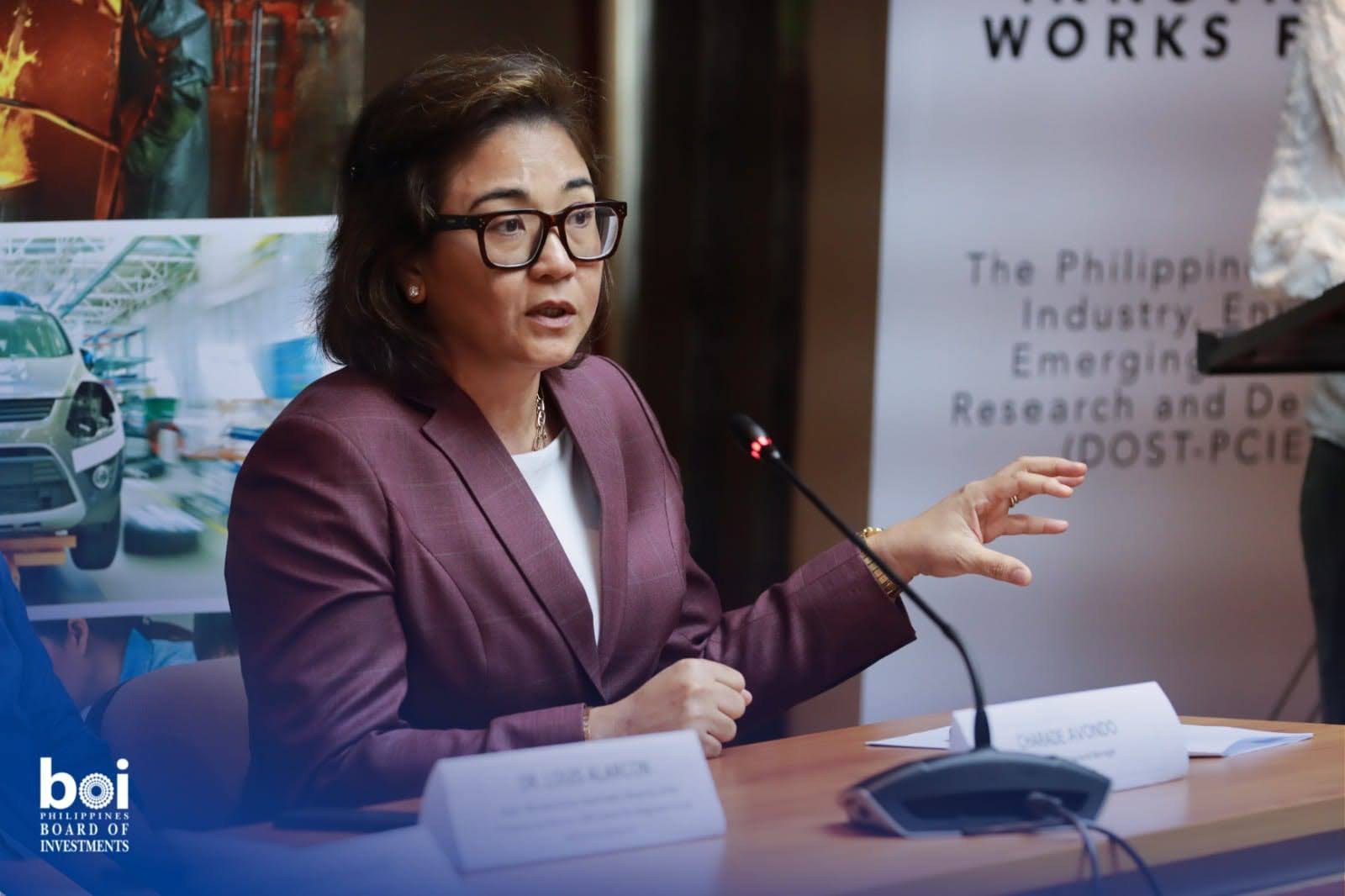The IC Design Workforce Media Roundtable brought together officials from key government agencies like the Department of Trade and Industry (DTI), DOST Philippine Council for Industry, Energy and Emerging Technology Research and Development (DOST-PCIEERD), and Center for Integrated Circuits and Devices Research (CIDR), along with industry associations and academic stakeholders. The event highlighted the significance of integrated circuits (ICs) in modern electronic devices and the continuous advancements in various industries.
The government and private companies join forces to reclaim the Philippines' strong market position and aim to have 128,000 semiconductor engineers and technicians by 2028 through various programs, trainings and development initiatives.
Investments in Electronics Industry R&D
DOST has allocated significant investments towards R&D in the electronics industry, supporting 29 projects with 894 million pesos from 2011 to 2022.
Human Resource Development Program
DOST-PCIEERD's program focuses on enhancing Filipino R&D capabilities through various initiatives like the Visiting Expert Program, Research Attachment or Fellowship, and Institution Development Program, among others.
Ongoing R&D Initiatives
Projects like the Automated Emergency Ventilator, Spiritus Vitae Ventilators, and LISA Robot showcase innovation in addressing healthcare challenges. The development of micro-C IC and Novel CIM Architecture demonstrates progress in microelectronics.
Established Facilities
Facilities like ADMATEL, EPDC, and AMCen play a vital role in supporting the semiconductor and electronics industry, offering advanced testing, product development, and additive manufacturing services.
Funding Mechanisms for Capability Building
The Philippine Institute for Integrated Circuits, supported by DOST-PCIEERD, aims to develop professionals in IC technology to contribute to industry advancement.
Future Directions
The PATHS roadmap aims to enhance industrial competitiveness and sustainable growth. Collaboration with industry, increased R&D funding, and programs for Filipino innovators are essential for the sector's growth and competitiveness.
By fostering collaboration, increasing R&D investments, and empowering Filipino innovators, the electronics sector can thrive and contribute to technological advancements and economic growth.
IC Design in Academia: Opportunities and Challenges
Louis P. Alarcón from the UP Microelectronics Laboratory presented the opportunities and challenges of IC design in academia. It highlights the crucial role of ICs in modern electronic devices and the growing demand for skilled IC designers.
The Importance of ICs:
- ICs are miniature components that manipulate information and/or energy.
- They are essential for various industries, including computing, telecommunications, automotive, and power.
- The complexity of ICs is rapidly increasing, requiring advanced skills and knowledge.
The Challenge: A Severe Lack of Graduate-Level IC Designers:
The Philippines faces a critical shortage of graduate-level IC designers, hindering its ability to attract investments in advanced technology areas. This shortage is evident in the recent investments in Malaysia, Indonesia, and Vietnam.
The Need for Graduate-Level IC Designers:
IC design requires a deep understanding of various disciplines, including signal processing, AI/machine learning, system design, analog and digital circuits, and communication theory.
The increasing complexity of ICs requires specialized knowledge and skills that are beyond the scope of undergraduate curricula.
The Center for Integrated Circuits and Devices Research (CIDR):
The CIDR aims to bridge the gap between academia, industry, and government by fostering collaboration and research. It focuses on graduate-level manpower development and pre-competitive applied research.
National-Level Initiatives:
His presentation proposes the establishment of a National Graduate Program on IC Design, a National Faculty Fellowship Program on IC Design, a National Research Fund for IC Design, and a National Center for Integrated Circuits.
The Impact of Graduate-Level Manpower: Analog Devices & UP EEEI Microlab:
Analog Devices, a leading semiconductor company, has benefited significantly from collaborations with UP EEEI.
Over 100 engineers from UP EEEI have joined Analog Devices, contributing to the development of innovative products and generating significant revenue.
This partnership has created a positive impact on the Philippine economy by increasing employment and fostering innovation.
The Future of IC Design in the Philippines:
The presentation emphasizes the need for increased collaboration between academia, industry, and government to support the development of IC design capabilities.
It highlights the importance of investing in R&D and providing training programs for Filipino innovators to empower them to contribute to the global electronics market.
Key Points:
The Philippines faces a critical shortage of graduate-level IC designers.
The CIDR is a vital initiative to bridge the gap between academia, industry, and government.
National-level initiatives are necessary to support the development of IC design capabilities.
The partnership between Analog Devices and UP EEEI demonstrates the positive impact of collaborations.
Increased collaboration, R&D investment, and training programs are crucial for the future of IC design in the Philippines.
His presentation serves as a call to action for stakeholders to invest in the development of a skilled IC design workforce to enable the Philippines to become a leading player in the global electronics industry.
Collaboration Between Industry Leaders
Charade Avondo, President and General Manager of Xinyx Design, participated in the IC Design Workforce Media Roundtable press briefing focusing on the growth of the semiconductor industry. The briefing highlighted the importance of collaboration between industry leaders, government agencies, and academic institutions to drive growth through upskilling and development initiatives.
As a leading integrated circuit (IC) design company in the Philippines, Xinyx Design is committed to promoting the country's position in the global semiconductor landscape. They actively support and promote microelectronics and IC design through initiatives like Campus Connect and Xinyx Unlocked. By participating in this initiative, Xinyx Design aims to amplify their commitment to achieving a common goal through inter-sectoral cooperation.









0 Comments